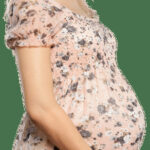Recognizing the early signs of pregnancy is crucial for women who are trying to conceive or those who may have had unprotected sex. This blog post will cover the various symptoms and indicators that could point to the possibility of being pregnant. From missed periods to changes in breasts, we will explore the most common signs of early pregnancy and provide tips on managing these symptoms.
One of the most pressing questions for women who suspect they may be pregnant is, “What are the early signs of pregnancy?” Understanding and recognizing these signs can help individuals take appropriate steps towards confirming a potential pregnancy and seeking necessary medical care and support. This article aims to provide valuable information on this topic to help alleviate concerns or uncertainties.
Knowing what to look out for in the very early stages of pregnancy can make a significant difference in how one approaches their health and well-being during this crucial time. By being aware of these early signs, individuals can take proactive measures and make informed decisions about their next steps. Whether it’s scheduling a doctor’s appointment or making adjustments to their lifestyle, having this knowledge is invaluable.
Missed Period
A missed period is often one of the first and most noticeable signs of pregnancy. Many women keep track of their menstrual cycles, making it easier to recognize when a period is late. This can be a strong indicator that further investigation may be needed.
An average menstrual cycle usually lasts between 28 to 32 days, and missing a period for more than a week from its expected date may indicate a possible pregnancy. It is important to note that stressing over a missed period can sometimes cause further delays due to hormonal fluctuations.
Moreover, there are other factors apart from pregnancy that can lead to a missed or delayed period, such as excessive stress, drastic weight changes, illness, or certain medications. However, if you suspect that you might be pregnant after experiencing a missed period, taking a home pregnancy test is the best course of action. These tests are designed to detect the presence of human chorionic gonadotropin (hCG), which is produced by the placenta shortly after implantation occurs.
In addition to taking a home test, other symptoms such as frequent urination, morning sickness, breast tenderness, mood swings and fatigue may also occur around the same time as experiencing a missed period. It is crucial to monitor these symptoms as well before jumping to conclusions about being pregnant based solely on one factor.
Of course for many women these symptoms never come at all or they may differ in duration and intensity from woman to woman even across pregnancies what are early signs of pregnancy.
| Early Signs of Pregnancy | Possible Causes |
|---|---|
| Missed Period | Pregnancy |
| Frequent Urination | Pregnancy Hormones putting pressure on bladder |
| Mood Swings | Fluctuating hormones during early pregnancy |
Changes in Breasts
During the early stages of pregnancy, many women experience changes in their breasts that can serve as early signs of pregnancy. These changes are often one of the first physical indicators and can be an important clue for those wondering, “what are early signs of pregnancy?”.
Tenderness and Swelling
One common change in the breasts during early pregnancy is tenderness or swelling. This occurs due to hormonal shifts that lead to increased blood flow and glandular development in preparation for breastfeeding. Many women report that their breasts feel fuller, heavier, and more sensitive to touch during this time.
Nipple Changes
In addition to tenderness and swelling, the nipples may also undergo changes in color or shape. Some women notice that their nipples darken or become more prominent, while others may experience a deepening of the pigment around the areola. These changes are attributed to heightened levels of the hormone estrogen and preparations for lactation.
Breast Changes vs Premenstrual Signs
It is important to note that breast changes can also occur before a menstrual period, so it is essential to consider other symptoms alongside these indicators when trying to determine if they may be related to pregnancy. However, when combined with other potential signs such as a missed period or nausea, changes in the breasts can provide valuable insight into whether a woman may be pregnant.
Nausea and Morning Sickness
One of the early signs of pregnancy that many women experience is nausea and morning sickness. This can be characterized by feelings of queasiness, the urge to vomit, and sensitivity to certain smells. While some women may only experience mild nausea, others may have more severe symptoms that impact their daily routine.
Common Symptoms
For many women, morning sickness can occur at any time of the day, not just in the morning. It may start around 6 weeks into the pregnancy and usually subsides by the end of the first trimester. Nausea and vomiting can also be triggered by certain foods or odors, making it important for pregnant individuals to pay attention to their body’s signals.
Managing Morning Sickness
There are several strategies for managing morning sickness, such as eating small, frequent meals throughout the day instead of large meals; avoiding foods and smells that trigger nausea; staying hydrated; and getting plenty of rest. Some women find relief from ginger-based products or acupressure wristbands, while others may need medication prescribed by a healthcare provider for more severe cases.
Seeking Support
It is essential for pregnant individuals experiencing severe morning sickness to seek medical advice from a healthcare provider. If there are concerns about dehydration or inability to keep food down, prompt intervention is necessary to ensure both maternal and fetal health. Seeking support from loved ones or joining online communities of other expectant mothers can also provide comfort and understanding during this challenging early stage of pregnancy.
Fatigue
During the early stages of pregnancy, many women experience extreme tiredness, commonly referred to as fatigue. This is often one of the first signs that a woman may be pregnant, and it can be quite overwhelming for some. The body is undergoing significant changes in the first trimester, which can lead to feelings of exhaustion.
Some common symptoms of fatigue during early pregnancy include feeling constantly tired even after a full night’s sleep, difficulty concentrating, and the need for frequent naps throughout the day. These symptoms are often caused by hormonal changes and the body’s increased energy demands as it works to support the growing fetus.
To help manage fatigue during early pregnancy, there are several strategies that can be effective. Firstly, it’s important for pregnant women to listen to their bodies and get plenty of rest. It may be necessary to adjust daily routines and schedules in order to allow for adequate rest and relaxation.
Additionally, maintaining a healthy diet and engaging in light exercise can help combat feelings of exhaustion. It’s also crucial for pregnant women to stay well-hydrated by drinking plenty of water throughout the day.
In some cases, extreme fatigue during early pregnancy may indicate an underlying medical issue such as anemia or thyroid dysfunction. Therefore, if fatigue is severe or persistent, it’s essential for women to consult with a healthcare provider. Overall, recognizing and managing early signs of pregnancy such as fatigue is crucial for ensuring both maternal and fetal health throughout the gestational period.
Frequent Urination
Pregnancy brings about several changes in a woman’s body, and one of the early signs to look out for is frequent urination. This symptom can start as early as 6-8 weeks after conception and is caused by the growing uterus putting pressure on the bladder. Here are some things to keep in mind when it comes to frequent urination as a potential sign of pregnancy:
- Increased frequency: If you find yourself making more trips to the bathroom than usual, especially during the night, it could be a sign that you’re pregnant.
- Urgency: Feeling an urgent need to urinate even when your bladder isn’t full is another common indication of early pregnancy.
- Hydration: Ensuring proper hydration is important whether or not you suspect you might be pregnant. Drinking plenty of water can help alleviate any discomfort caused by frequent urination.
It’s important to note that frequent urination can also be caused by other factors such as urinary tract infections or diabetes, so if you experience this symptom and suspect you may be pregnant, it’s best to take a home pregnancy test or visit your healthcare provider for confirmation. Understanding this early sign of pregnancy can help women make informed decisions about their reproductive health and seek appropriate medical care.
In addition to understanding frequent urination as an early sign of pregnancy, it’s essential for women to track other potential symptoms such as missed periods, changes in breast sensation, nausea and fatigue. Recognizing these signs early on can lead to timely prenatal care and support overall maternal well-being throughout the pregnancy journey.
Food Aversions and Cravings
Early signs of pregnancy can vary from woman to woman, but one common symptom is experiencing food aversions and cravings. It is not uncommon for women in the early stages of pregnancy to suddenly have aversions to foods they once enjoyed, while also experiencing intense cravings for certain types of food. These changes in taste and smell can be a result of hormonal fluctuations and are often one of the earliest indicators that a woman may be pregnant.
Food aversions during early pregnancy can range from mild disinterest to full-blown nausea or disgust at the thought of certain foods. On the other hand, cravings for specific types of food can also become quite intense. This phenomenon is often referred to as “pregnancy cravings” and can lead women to desire unusual combinations or large quantities of certain foods. For example, some women may crave pickles and ice cream, while others might want spicy foods or fruit constantly.
It is important for expectant mothers to pay attention to these food-related symptoms as they can provide insight into potential early signs of pregnancy. Keeping track of any unusual food preferences or intolerances can help women recognize when it might be time to take a pregnancy test or seek medical advice.
| Early Signs | Description |
|---|---|
| Food Aversions | Ranging from mild disinterest to full-blown nausea towards certain foods. |
| Pregnancy Cravings | Intense desires for specific types of food, including unusual combinations. |
Mood Swings
During early pregnancy, mood swings are a common symptom that many women experience. Fluctuating hormones, such as estrogen and progesterone, can lead to major emotional changes. It’s important for women to be aware of these mood swings so that they can manage them effectively and seek support if needed.
One of the early signs of pregnancy is sudden mood changes or extreme emotions. Some women may feel more irritable or easily upset, while others may experience heightened feelings of anxiety or sadness. These mood swings can be confusing and alarming for those who are not aware that they are a common part of early pregnancy.
To manage mood swings during early pregnancy, it’s helpful for women to engage in self-care activities that promote relaxation and stress reduction. This can include activities such as yoga, meditation, or deep breathing exercises. Additionally, seeking support from loved ones and talking about any concerns or worries can also help alleviate the emotional impact of mood swings.
It’s important for women who are experiencing persistent or severe mood swings to speak with their healthcare provider. In some cases, extreme mood changes during pregnancy could be a sign of prenatal depression or anxiety disorders. Seeking medical advice can ensure that women receive the appropriate support and resources to manage their emotional well-being during this significant time.
Conclusion
In conclusion, recognizing and understanding the early signs of pregnancy is crucial for individuals who are trying to conceive or may have concerns about a potential pregnancy. From missed periods to changes in breasts, nausea, fatigue, frequent urination, food aversions and cravings, as well as mood swings, being aware of these early indicators can help individuals take appropriate action and seek necessary medical advice.
It is important to remember that each person’s experience with pregnancy symptoms can vary, so it’s essential to pay attention to one’s body and consult a healthcare professional if there are any doubts.
Ultimately, if you are experiencing any of the early signs of pregnancy mentioned in this blog post or suspect that you may be pregnant, it is recommended to take a home pregnancy test or visit your healthcare provider for confirmation. Seeking prenatal care early on is essential for ensuring the health and well-being of both the mother and the developing fetus.
Remember that every pregnancy journey is unique, so do not hesitate to reach out for support and guidance during this potentially life-changing time.
Frequently Asked Questions
How Soon Do Early Pregnancy Symptoms Start?
Early pregnancy symptoms can start as early as one week after conception. These symptoms may include fatigue, breast tenderness, nausea, and increased urination. However, every woman’s experience with early pregnancy symptoms is different.
What Are Symptoms of Pregnancy at 1 Week?
At one week pregnant, a woman may not even be aware that she is pregnant yet as this is still very early in the pregnancy. However, some women may experience symptoms such as fatigue, mild cramping, or light spotting due to implantation of the fertilized egg in the uterus.
How Can I Tell Early if I’m Pregnant?
There are several early signs that can indicate a possible pregnancy. These include missed periods, tender or swollen breasts, nausea or vomiting (often referred to as morning sickness), and frequent urination.
Additionally, some women may experience heightened sensitivity to certain smells or food aversions when they are pregnant. Taking a home pregnancy test is the most definitive way to determine if you are pregnant early on.

Welcome to my fertility blog. This is a space where I will be sharing my experiences as I navigate through the world of fertility treatments, as well as provide information and resources about fertility and pregnancy.





